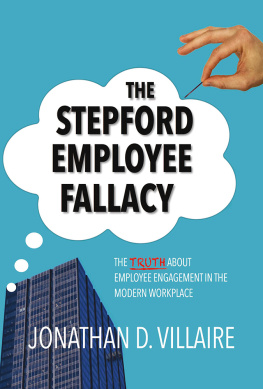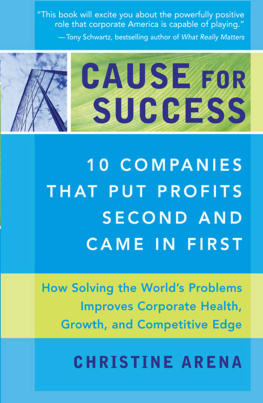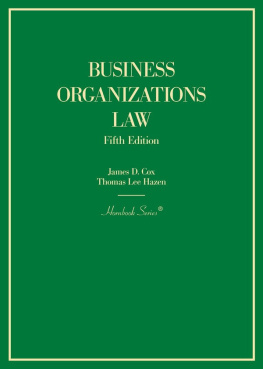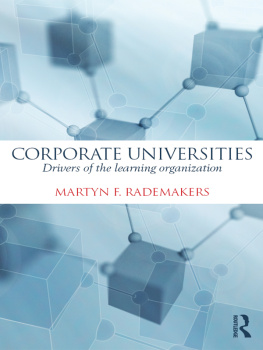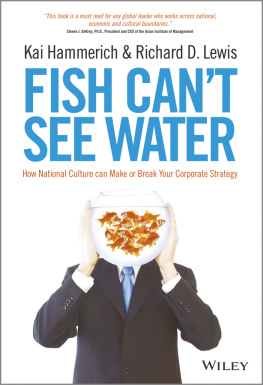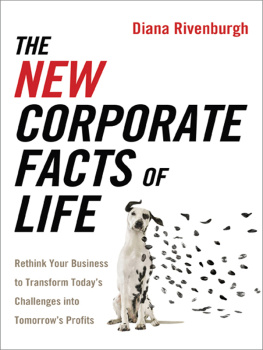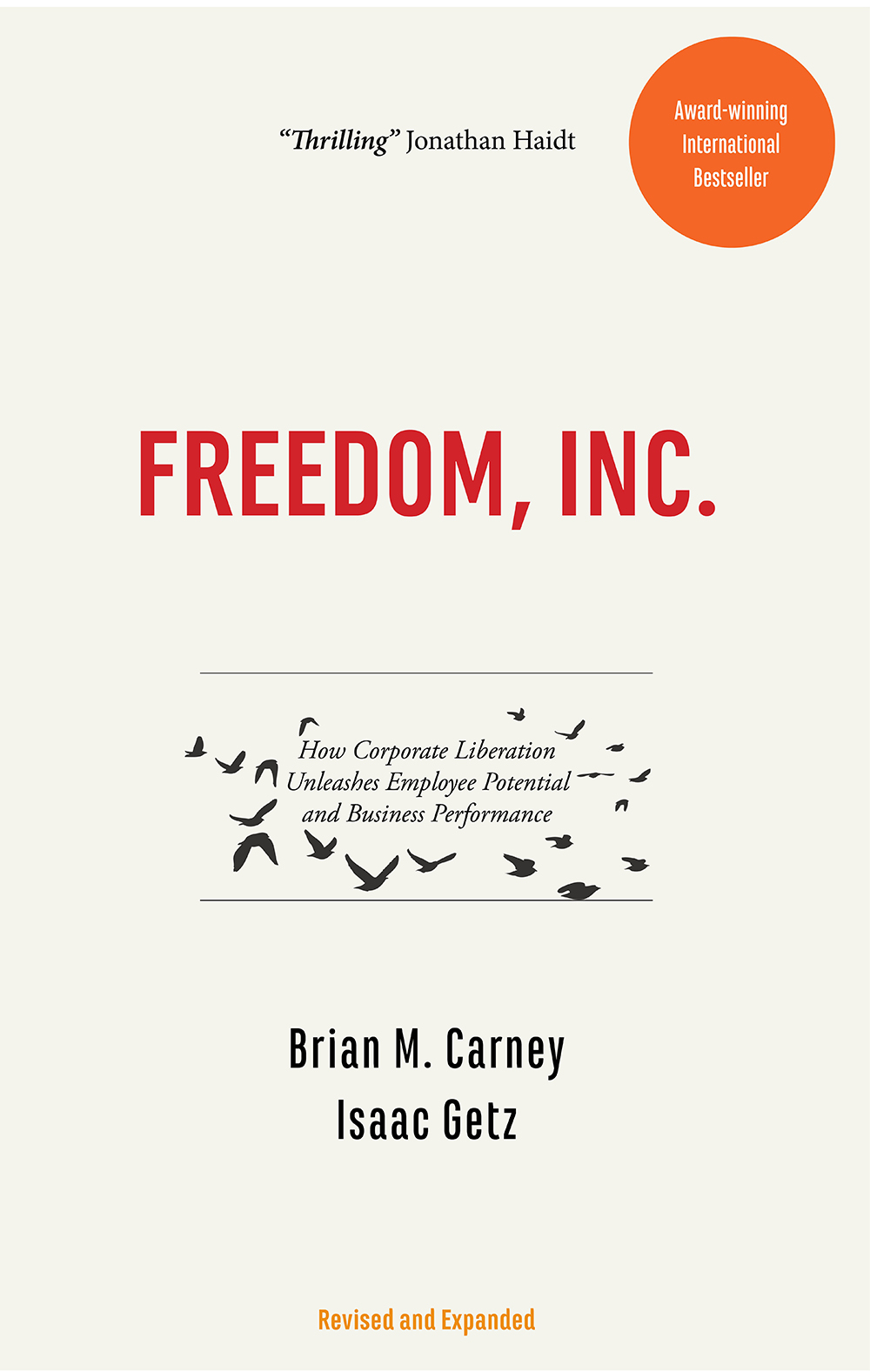Brian Carney and Isaac Getz have used their powerful concept of freedom to serve as a crucial foundation for their imaginatively framed ideas in the broader area of commerce. A most interesting and original work.
J AMES M AC G REGOR B URNS , A P ULITZER P RIZE AND A UTHOR OF Leadership AND OF Transforming Leadership
Brian M Carney and Isaac Getzs book Freedom, Inc. is after my own heart. Its core idea of empowering employees to lead organizational growth is the holy grail of corporate sustainability and the only definitive antidote to enterprise rejuvenation. The book is indeed a must-read for all managers and proprietors who are serious about remaining relevant in the shifting sands of time!
V INEET N AYAR , F ORMER CEO, HCL T ECHNOLOGIES AND F OUNDER , S AMPARK F OUNDATION , A UTHOR OF Employees First, Customers Second
When do you do your best work? When told how to do your job, or when you know and embracethe reason why you are working? We all know the answer. Carney and Getz help you apply this fundamental insight to liberate your company, your employees, and your life. This thrilling book has the cure for what ails most companies, and perhaps even most economies.
J ONATHAN H AIDT , N EW Y ORK U NIVERSITY S TERN S CHOOL OF B USINESS , A UTHOR OF The Righteous Mind
Freedom, Inc. is a revolutionary manifesto for unplanned dynamismthe root strength of every successful company in history.
Forbes
Carney and Getz show that organizations that spend the time, money, and effort on the soft stuff of organizations culture end up with truly empowered workforces.
Strategy + Business
Messrs. Carney and Getz offer portraits of chief executives who guided their businesses to prosperity by freeing up talent.
Wall Street Journal
Carney and Getz book's central point: If you give your workers maximum freedom they will lead your business to higher productivity, profits, and growth.
New York Times
Brian Carney and Isaac Getz take us into companies that have made freedom their lifebloodcompanies that trust their employees and liberate them, counting on those employees to act in the best interests of the company, and taking advantage of that passion to achieve enviable corporate financial results.
Globe and Mail


Copyright 2009, 2016 by Brian M. Carney and Isaac Getz
All rights reserved, including the right of reproduction in whole or part in any form. For information, address International Creative Management at 730 Fifth Avenue, New York, NY 10019.
Design by James Fletcher
ebook ISBN: 978-07867-5636-0
paperback ISBN: 978-0-7867-5635-3
Distributed by Argo Navis Author Services
To our children: Brians Luke, James, and Aletheia and Isaacs Elie and Adle
Table of Contents
Guide
Contents
Corporate liberation is not a strategy. It is a business philosophy that leaders around the world are using to radically transform their organizations. Liberating leaders believe that a workplace based on respect and freedom is a more natural environment than one based on mistrust and control. So they acted to align their organizations with these beliefs: They liberated people's initiative and potential and with it, unshackled their companies performance.
A lot has happened since Freedom, Inc. first appeared in 2009. The book itself has been translated to six other languages. In France, it won the best business book award and was the No.1 business/management bestseller on Amazon.fr ten months almost without interruption. More importantly, it has inspired hundreds of leaders to launch their own corporate liberation. The French daily Le Monde has heralded the start of a corporate liberation movement in France. Since then, the phenomenon has made the cover of leading periodicals, been shown on the evening news of major European TV chains, and been the subject of a 90-minute TV documentary that broke all the records for popularity.
Most liberated companies have been small and medium sizethough some have grown tremendously since. Yet increasingly, multinationals such as Michelin or Decathlonoperating in Europe, America and Asiaare joining the corporate liberation movement that pioneers such as W.L. Gore and USAA began.
Corporate liberation has no frontiers, geographical or industrial. Vineet Nayar has liberated an Indian high-tech giant and David Marquet, a U.S. nuclear submarine. Leaders of organizations of all sizes and types are shedding their hierarchies and bureaucracies and transforming them into respect- and freedom-based workplaces. Every morning their employees go to work, but many prefer to say they go to have funpursuing a common dream using their own initiative. Incidentallyor naturallytheir organizations routinely outperform the competition. In other words, respect and freedom breed fun and greatness.
Brian M. Carney and Isaac Getz
New York and Paris
September 2015
FREEDOM WORKS.
In every aspect of our livesin politics, in economics, in entertainment, and in family lifewe demand the freedom to decide matters for ourselves. And yet when it comes to our work lives, far too many people are stifled, constrained, hemmed in, and tied down by bureaucracy and rules that have nothing to do with allowing them to do the best they can in their jobs. These constraints leave people feeling out of control of their work lives, which, in turn, leads to stress, fatigue, and disengagement from work.
Amazingly, all of this is already well understood and has been for decades. As far back as 1924, William L. McKnight, the legendary CEO of 3M, put the matter succinctly: If you put fences around people, you get sheep. Give people the room they need. With that in mind, McKnight went on to build an environment at 3M that unleashed the creativity and initiative of 3Ms people. And yet the culture McKnight built at 3M has been more admired than imitated. Sixty years later, Japanese industrialist Konosuke Matsushita looked across the ocean at his competitors and described a corporate America still in the grip of Frederick W. Taylors scientific management, which organizes work by means of detailed procedures that specify narrow, repetitive tasks for everyone, and demands full compliance with their execution:
We are going to win and the industrial West is going to lose out... because... your firms are built on the Taylor model. Even worse so are your heads. With your bosses doing the thinking while the workers wield the screwdrivers... For you the essence of good management is getting the ideas out of the heads of the bosses and into the hands of labor. We are beyond the Taylor model. Business... is now so complex and difficult, the survival of firms so hazardous and fraught with danger, that continued existence depends upon the day-to-day mobilization of every ounce of intelligence.
Notice that Matsushita was not arguing that liberating your employees was a nice thing to do for them, or that it would make them happier or make managers better people. Continued existence, he said, depends upon the day-to-day mobilization of every ounce of intelligence. That means every ounce of intelligence in every brain that comes through the door of your company every day. If you are not doing everything you can to take advantage of that brainpower and the knowledge those brains possess about your business, youre not only leaving money on the table, you are putting your companys survival at risk.



